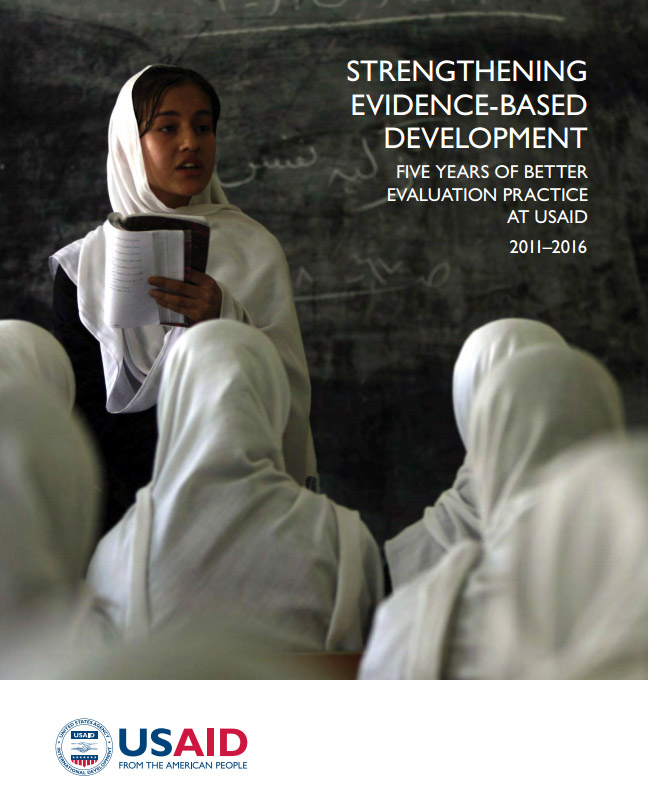Speeches Shim
Strengthening Evidence-Based Development ![]() (pdf - 4 MB)
(pdf - 4 MB)
In a CDCS, a Mission sets the stage for more detailed planning for monitoring, evaluation and learning in a PMP, and subsequent project and activity Monitoring, Evaluation and Learning (MEL) Plans. In some cases, Missions may elect to identify information gaps they hope to fill with evaluations, or signal their interest in particular types of evaluations in relation to their DOs, e.g., whole of project, ex post, or impact evaluations during the strategy period, but it is not expected that a CDCS will make firm commitments in this regard.
In a CDCS it may be useful for a Mission to indicate its awareness of the types of evaluations USAID normally undertakes and suggest where each type might prove particularly useful for furthering the Mission's strategies. Both performance and impact evaluations should be considered:
- Impact Evaluations: These measure the change in a development outcome that is attributable to a defined intervention. Impact evaluations are based on models of cause and effect and require a credible and rigorously defined counterfactual to control for factors other than the intervention that might account for the observed change.
- Performance Evaluations: These encompass a broad range of evaluation methods. They often incorporate before–after comparisons but generally lack a rigorously defined counterfactual. Performance evaluations may address descriptive, normative, and/or cause-and-effect questions.
While Missions need not provide detailed information about the types of evaluations they expect to undertake until they prepare a PMP, acknowledgement in a CDCS of an awareness of USAID's evaluation requirements, and some information about how the Mission expects to fulfill these requirements could be helpful. USAID's evaluation requirements are highlighted in the box below.
USAID Evaluation Requirements |
|---|
|
Requirement 1: Each Mission and Washington OU that manages program funds and designs and implements projects as described in 201.3.3 must conduct at least one evaluation per project. The evaluation may address the project as a whole, a single activity or intervention, a set of activities or interventions within the project, questions related to the project that were identified in the PMP or Project MEL Plan, or cross-cutting issues within the project. Requirement 2: Each Mission and Washington OU must conduct an impact evaluation, if feasible, of any new, untested approach that is anticipated to be expanded in scale or scope through U.S. Government foreign assistance or other funding sources (i.e., a pilot intervention). Pilot interventions should be identified during project or activity design, and the impact evaluation should be integrated into the design of the project or activity. If it is not feasible to effectively undertake an impact evaluation, the Mission or Washington OU must conduct a performance evaluation and document why an impact evaluation wasn’t feasible. An evaluation of a pilot intervention may count as one of the evaluations required under Requirement 1. Requirement 3: Each Mission must conduct at least one “whole-of-project” performance evaluation within their CDCS timeframe. Whole-of-project performance evaluations examine an entire project, including all its constituent activities and progress toward the achievement of the Project Purpose. A whole-of-project evaluation may count as one of the evaluations required under Requirement 1. All Missions and Washington OUs may conduct non-required evaluations for learning or management purposes as needed at any point in implementation of the strategy, project, or activity. |
| << CDCS Performance Indicator and Baseline Template (Optional) | Up | CDCS Evaluation Questions Template >> |
ProjectStarterBETTER PROJECTS THROUGH IMPROVED |
A toolkit developed and implemented by: For more information, please contact Paul Fekete. |


Comment
Make a general inquiry or suggest an improvement.